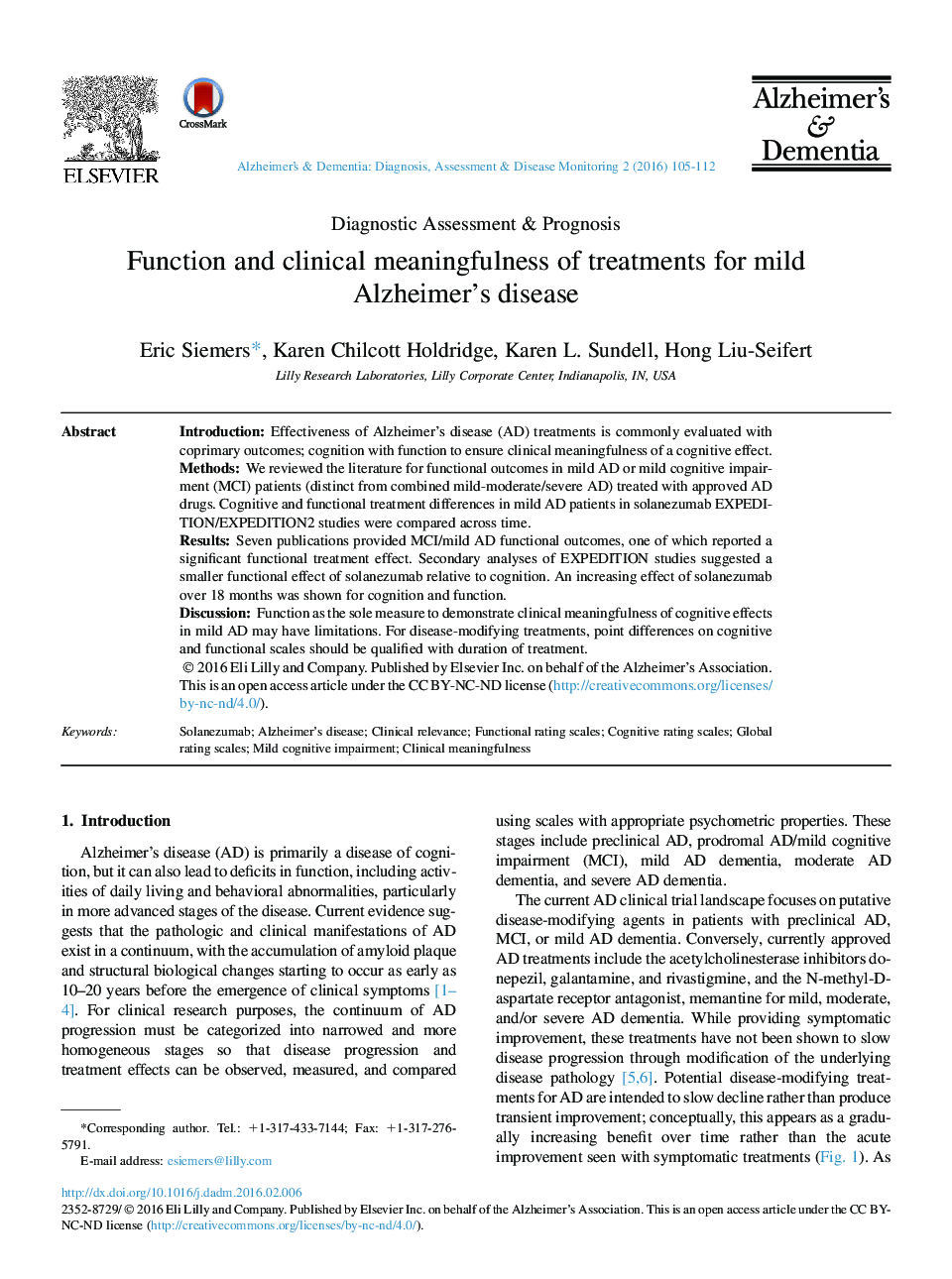| Article ID | Journal | Published Year | Pages | File Type |
|---|---|---|---|---|
| 3031999 | Alzheimer's & Dementia: Diagnosis, Assessment & Disease Monitoring | 2016 | 8 Pages |
IntroductionEffectiveness of Alzheimer's disease (AD) treatments is commonly evaluated with coprimary outcomes; cognition with function to ensure clinical meaningfulness of a cognitive effect.MethodsWe reviewed the literature for functional outcomes in mild AD or mild cognitive impairment (MCI) patients (distinct from combined mild-moderate/severe AD) treated with approved AD drugs. Cognitive and functional treatment differences in mild AD patients in solanezumab EXPEDITION/EXPEDITION2 studies were compared across time.ResultsSeven publications provided MCI/mild AD functional outcomes, one of which reported a significant functional treatment effect. Secondary analyses of EXPEDITION studies suggested a smaller functional effect of solanezumab relative to cognition. An increasing effect of solanezumab over 18 months was shown for cognition and function.DiscussionFunction as the sole measure to demonstrate clinical meaningfulness of cognitive effects in mild AD may have limitations. For disease-modifying treatments, point differences on cognitive and functional scales should be qualified with duration of treatment.
